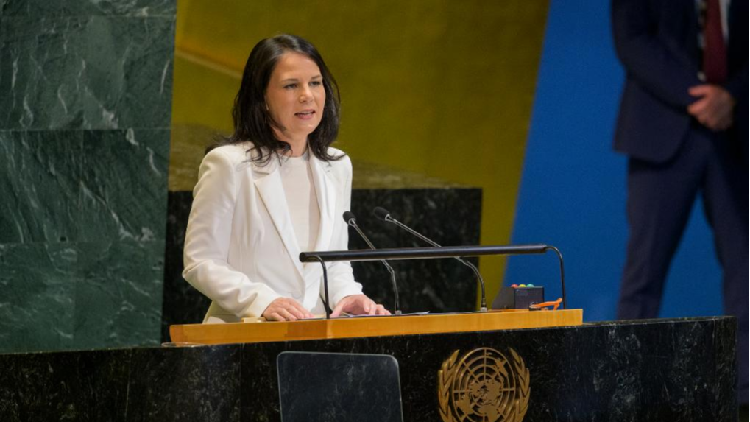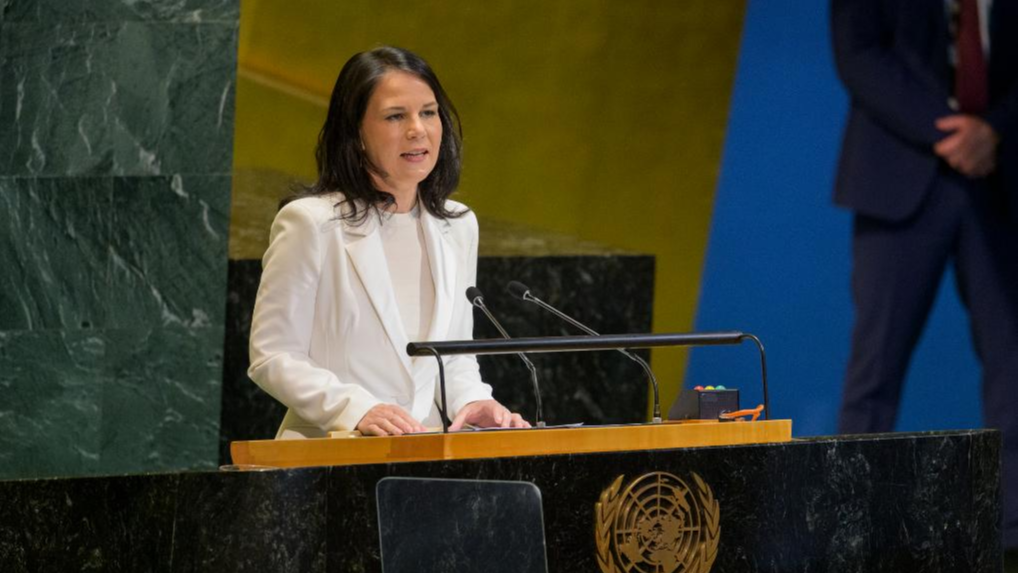Former German Foreign Minister Annalena Baerbock Elected President of UN General Assembly
Baerbock vows to serve as honest broker and unifier for all 193 UN member states in her speech to the General Assembly


In a decisive outcome on Monday, former German Foreign Minister Annalena Baerbock was elected as the new president of the upcoming 80th session of the United Nations General Assembly. The election, held by secret ballot, saw Baerbock receive a strong mandate with 167 votes in favor out of 188 ballots cast, while fourteen member states abstained.
Baerbock is set to officially take office in September 2025, succeeding the current president of the General Assembly, Philemon Yang of Cameroon. This transition comes at a pivotal juncture for the United Nations, as the organization faces considerable political and financial pressures within the global multilateral system.
Addressing the General Assembly following her election, Baerbock emphasized her commitment to serve all 193 UN member states as an impartial mediator and force for unity. “As president of the General Assembly, I will engage in a trust-based dialogue with all member states,” she pledged, underlining her intention to foster meaningful consensus amid growing global challenges.
Baerbock highlighted the urgent context in which she will assume her role, noting, “More than 120 armed conflicts remind us that the primary mission of the United Nations – to save succeeding generations from the scourge of war – remains unaccomplished.” She also warned that achieving the Sustainable Development Goals (SDGs) will prove unattainable without bold and transformative action, referencing commitments made in the Pact for the Future.
Despite the many obstacles, Baerbock reinforced the continuing necessity of the United Nations, stating, “We also need to join efforts now to preserve what the United Nations has achieved since its establishment in 1945 to address the current global crisis and to adapt to emerging future challenges.”
UN Secretary-General António Guterres welcomed Baerbock's election during his remarks to the Assembly, noting that she steps into the presidency during a period of significant upheaval. “Conflicts, climate catastrophe, poverty, and inequality continue to challenge the human family. Mistrust and divisions are rife. The Sustainable Development Goals are alarmingly off track. Aid and development funding are drying up. And the UN institutions and structures still reflect the world of yesterday, not a vision of tomorrow,” Guterres stated.
Underscoring the gravity of the moment, he added, “This is a moment for us to unite, to forge common solutions, and to take action to confront these challenges.” Guterres also called attention to the significance of Baerbock’s election as only the fifth woman ever to lead the General Assembly, describing her "Better Together" vision as an inspiring motto for collective global action.
For eight decades, the UN General Assembly has been crucial in finding consensus, driving solutions, and taking steps toward a more peaceful and equitable world. As the international community prepares for the landmark 80th session, Baerbock’s leadership is anticipated to bring renewed energy and commitment to cooperation and problem-solving.
Baerbock brings substantial experience to her new role. She served as Germany’s federal foreign minister from December 2021 until May 2025, and has represented her country in the Bundestag since 2013. As co-chair of the Greens party between 2018 and 2022, she became known for her advocacy on climate policy, international security, and social equity.
Born in Hanover on December 15, 1980, Baerbock holds a degree in political science from Hamburg University and earned a Master of Laws from the London School of Economics and Political Science. Her academic background and political track record are expected to shape her approach to the complex agenda awaiting the General Assembly during her presidency.




